YOUR TRAVEL MEDICAL KIT
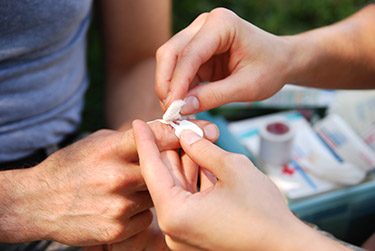
Medications
- regular prescription medications
- special prescriptions for traveling
- medication to prevent malaria if necessary
- antibiotic prescribed by your doctor for self-treatment of moderate to severe diarrhea
- EpiPen if you have training in its use
- over-the-counter medications for traveling
- antidiarrheal such as bismuth subsalicylate (Pepto-Bismol) or loperamide (Imodium)
- antihistamine such as diphenhydramine (Benadryl) or loratadine (Claritin)
- decongestant to take alone or in combination with an antihistamine
- motion sickness medication
- saline eye drops
- over-the-counter medications used regularly at home
- medication for pain or fever such as acetaminophen (Tylenol), ibuprofen (Advil) or aspirin
- mild laxative
- cough suppressant, alone or in combination with an expectorant
- cough drops
- antacid such as calcium carbonate (Tums)
- antifungal ointment or cream
- antibacterial ointment or cream
- 1% hydrocortisone cream
- water purification tablets
Protective Items
- insect repellent containing DEET (30 to 50 percent solution) or picaridin (up to 15 percent solution)
- sunscreen (preferably SPF 15 or greater and safe for the environment) with both UVA and UVB protection
- antibacterial hand wipes or an alcohol-based hand sanitizer containing at least 60 percent alcohol
- lubricating eye drops
- ear plugs
- personal protective equipment such as face masks and nitrile gloves
- personal safety equipment appropriate for your plans, such as helmets, car safety seats, protective glasses, work gloves, etc.
First Aid Supplies
- first aid quick-reference card
- basic first aid items such as various-sized bandages, gauze, elastic bandage, antiseptic, tweezers, scissors and cotton-tipped swabs
- moleskin for blisters
- butterfly bandages (Steri-Strips) for loose wound closures
- aloe gel for sunburns
- digital thermometer
- oral rehydration solution packets
Other Items
- mild sedative or other sleep aid such as melatonin
- gloves, preferably sterile
- medication to prevent altitude sickness
- splinting material for extremity injuries
- commercial suture and/or syringe kits (for use by a local health care provider; these items will require a letter on your prescribing physician’s letterhead)
- latex condoms
Documents
Travelers should carry the following documents with them at all times and also leave copies of them with a family member or close friend at home in case of an emergency:
- proof of vaccination on an International Certificate of Vaccination or Prophylaxis (ICVP) card or a medical waiver if specific vaccinations are required at your destination(s)
- copies of the prescriptions for all your medications, eyeglasses and/or contact lenses, and any other prescription medical supplies; include the generic names of medications in English and if possible translated into the language of your destination(s)
- documentation of any preexisting conditions such as diabetes or allergies in English and if possible translated into the language of your destination(s)
- proof of your health insurance coverage, supplemental travel health insurance, medical evacuation insurance and travel insurance; carry contact information for all insurance providers as well as copies of claim forms
- a contact card that you carry on your person at all times, which includes street addresses, phone numbers and email addresses for the following:
- a family member or close friend who will remain at home
- health care provider(s) at home
where you will be staying at your destination(s) - hospitals or clinics and emergency medical services at your destination(s)
- U.S. embassy or consulate at your destination(s)
Reference Books
For a list of suggested titles, see Resources in Section 1.
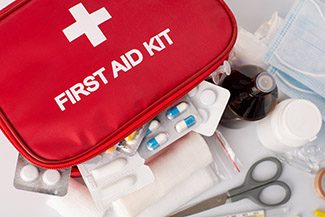
Your medical kit should contain medications, protective items, first aid supplies along with other items, documents, and reference books.
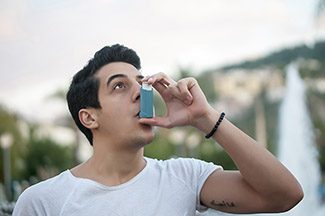
Pack over-the-counter medications and your prescriptions.
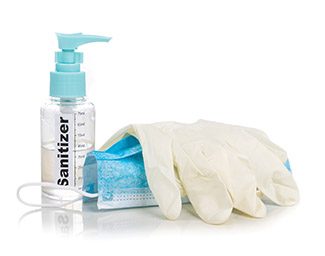
Be sure to bring protective items such as insect repellent, sunscreen, and hand sanitizer.
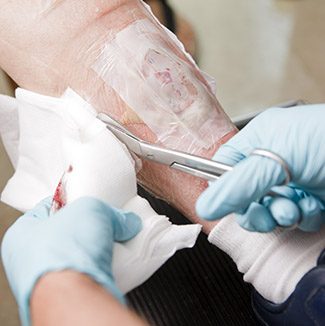
A first aid quick-reference card will provide basic first aid information.
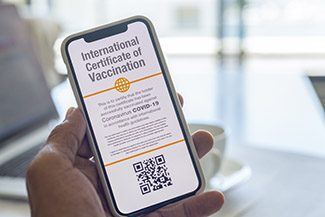
Proof of vaccinations may be required at your destination.
DAN Customer Service
Mon–Fri, 8:30 a.m. – 5 p.m. ET
+1 (919) 684-2948
+1 (800) 446-2671
Fax: +1 (919) 490-6630
24/7 Emergency Hotline
In event of a dive accident or injury, call local EMS first, then call DAN.
24/7 Emergency Hotline:
+1 (919) 684-9111
(Collect calls accepted)
DAN must arrange transportation for covered emergency medical evacuation fees to be paid.
Medical Information Line
Get answers to your nonemergency health and diving questions.
Mon–Fri, 8:30 a.m. – 5 p.m. ET
+1 (919) 684-2948, Option 4
Online: Ask A Medic
(Allow 24-48 hours for a response.)